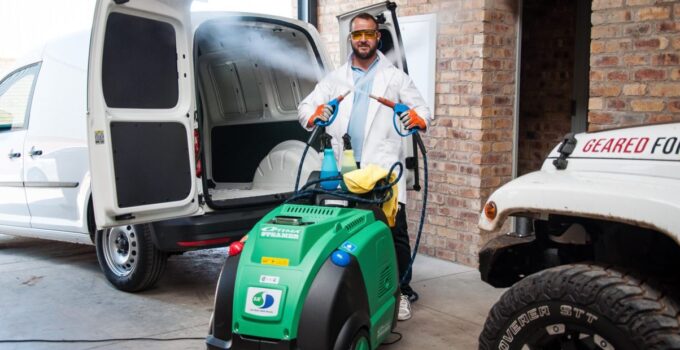Using saturated or dry steam for a number of cleaning purposes including degreasing and sanitizing a space, industrial steam cleaners are a game-changer for professional cleaning.
Despite so many innovations in so many different fields, professional cleaning seems to remain stuck in the past. Whether it’s residential spaces, social spaces, or industrial spaces; most of us still rely on the age-old method of sweeps and clean for any cleaning or degreasing purposes.
Granted that there are some automatic brushes and cleaning liquids used in larger spaces, but the system is just an upgrade to manual brushes, nothing more. Considering how time-consuming, stressful, and expensive these methods are, cleaning systems needed a massive upgrade; and industrial steam cleaner seems to answer all the issues of the past.
They are modern, quick, and greatly effective in cleaning, degreasing, and sanitizing any spaces. They also require no cleaning detergents, and thus, great for the environment. So, let’s find out everything you should know about them from below.
Page Contents
What is Industrial Steam Cleaner?
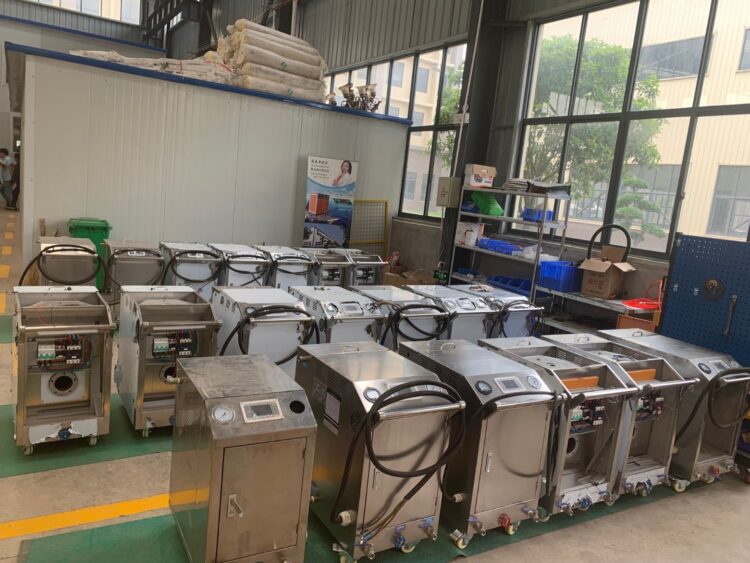
Source: made-in-china.com
They are usually the larger steam cleaning machines that utilize saturated or dry steams in order to clean, degrease, and sanitize large industrial spaces. As dry steam is one of the most natural ways of cleaning, these cleaners offer an eco-friendly, economic, and safer solution to cleaning. They are greatly useful in deep cleaning, as they require less time and incur fewer expenses.
How Do Industrial Steam Cleaners Work?
They work pretty similarly to the pressure cookers. It comes with a water tank that needs to be filled with cold waters. Then the water gets boiled to at least 100-degree Celsius, creating a supply of hot steams in the process. The heat can be increased further in order to create superheated steams, which are greatly effective in degreasing and sanitizing. Finally, the steam gets transported through a cleaner head or nozzles before getting spread onto the surfaces you need cleaning.
As heat is greatly beneficial in killing microorganisms, bacteria, and insects; it automatically makes the spaces sanitized.
Types of Industrial Steam Cleaners
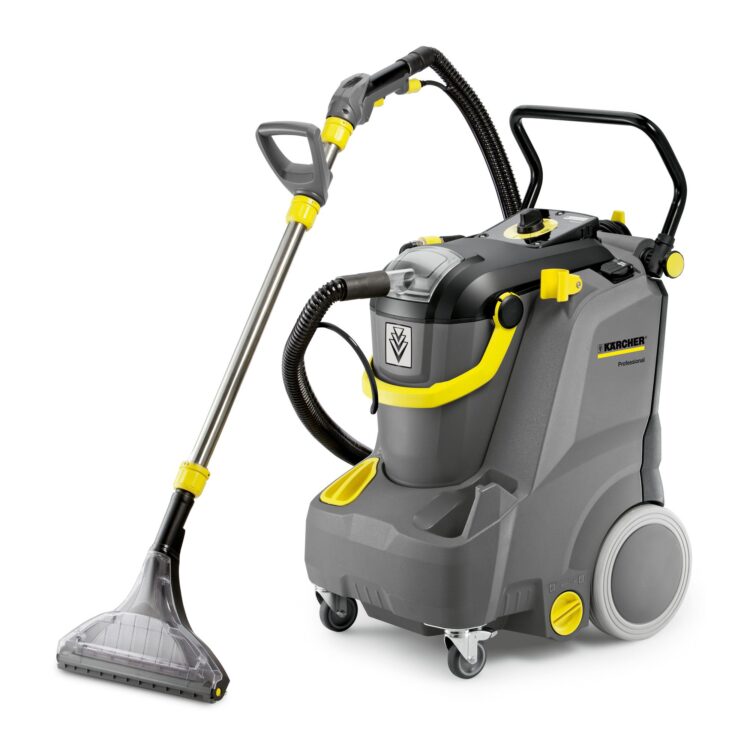
Source: pinterest.com
Thanks to the innovative efforts of some of the best steam cleaner manufacturers, industrial steam cleaners come in a variety of shapes and sizes, which are suitable for different purposes. The main types are:
1. Mobile Steam Cleaners
Despite needing to be relatively larger in size to tackle the larger industrial or public spaces, some industrial cleaners can still be designed as portable, mobile equipment. There are also some differences among the portable steam cleaners themselves. Some cleaners are equipped with wheels so that they can be dragged and transported around easily; while some others are so compactly built that they can be carried on people’s shoulders like a backpack. The wheeled steam cleaners usually have larger water tanks for continuous use.
2. Fixed Steam Cleaners
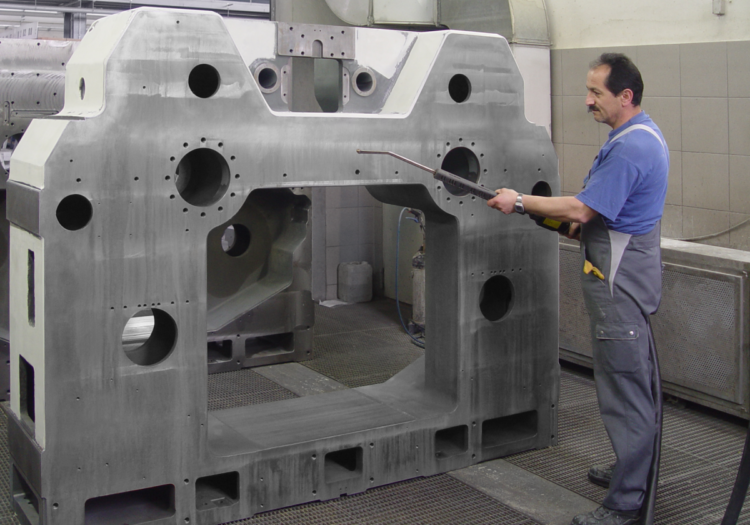
Source: rk-int.com
As the name suggests, they are the ones that are not that portable and are usually stationed in a fixed position for continuous use. They are perfect for industries with lots of fixed equipment and machinery that requires regular cleaning and degreasing. They can also be implemented in the production cycle to continuously sanitize the finished products.
3. Inline Steam Cleaners
While they are also fixed and stationery, those types are a category of their own rights because of their ability to be configured right in line with the production equipment. By configuring a dry steam cleaning tube with things like conveyor belts or any other finished product transportation tools; these cleaners can clean and sanitize your products right when they are finished; saving you time and money by eliminating the need to transport them into your industrial washer.
4. Industrial steam cleaners
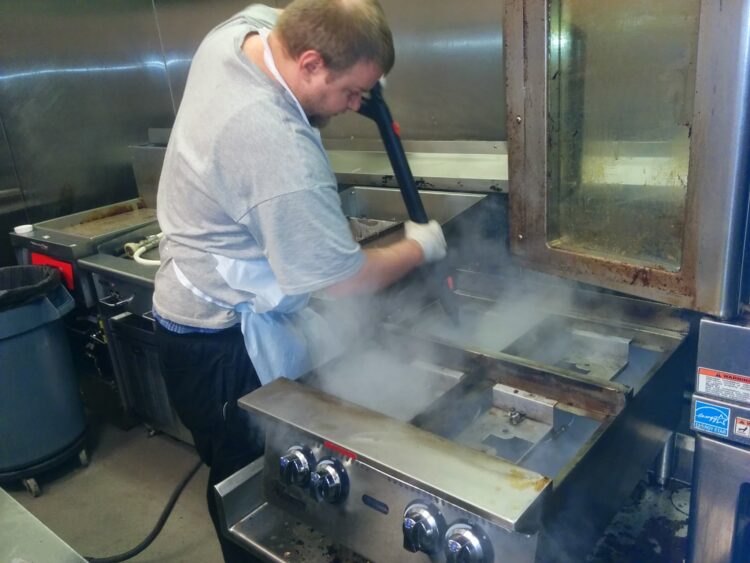
Source: steamcleaning.us
Industrial steam cleaners are also quite flexible and come with a few different nozzles and other accessories so that you can use the same machine to perform a number of different cleaning tasks including areas or parts of machinery that are otherwise difficult to reach.
Different Applications of Steam Cleaners
While almost all the industrial plants and public spaces can benefit from the use of industrial steam cleaners, some industries require it more than the others. So, the industries where they are mostly used are:
1. Food Industries
Facing the biggest challenge in terms of hygiene and sanitization, food industries have a plethora of applications for steam cleaners. It can be used to sanitize food processing equipment, disinfect the preparation surfaces, and the foods themselves; along with degreasing stoves, burners, vents, fans, conveyor belts, etc.
2. Healthcare Industries
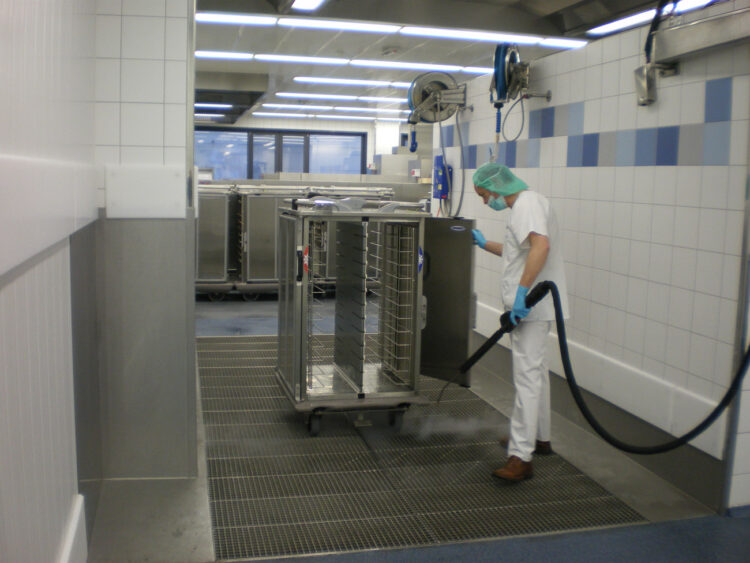
Source: reasrl.co.uk
Being the riskiest place of infection, healthcare industries can greatly benefit from the use of steam cleaners to perform a variety of tasks including public area cleaning, treatment area cleaning, removing molds, disinfecting operating and diagnosis tools, eliminating bacteria and viruses, etc. The same reasons make them a viable option for the pharmaceuticals and the beauty industries too.
3. Manufacturing Industries
Usually having larger spaces and a plethora of complicated machinery; different manufacturing industries can also rely on industrial steam cleaners to perform all their cleaning and sanitization tasks in an efficient manner. Thanks to the availability of nozzles and heads, they are perfect to degrease all the manufacturing equipment too.
Furthermore, due to the portability of mobile steam cleaners, it can be utilized in cleaning public areas and transport facilities such as the tube stations, bus, amphitheater, conference halls, etc.
Benefits of Industrial Steam Cleaners
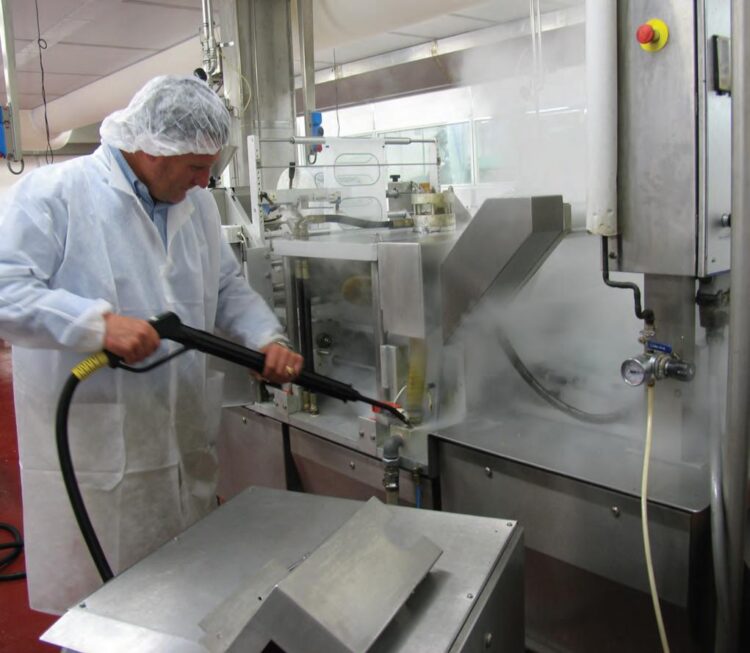
Source: industryupdate.com.au
First of all, they require no cleaning liquids and detergents; saving you some incurring costs in the process. The same reasons also make them great for the environment as there are no harmful residues. Steams also dry up as soon as they are spread, and can neutralize all the germs and bacteria including Covid-19. They are also much safer for the cleaning personnel as long as they are not exposed to the hot stream of dry steams.
To get more information please visit https://www.reasrl.co.uk/.

